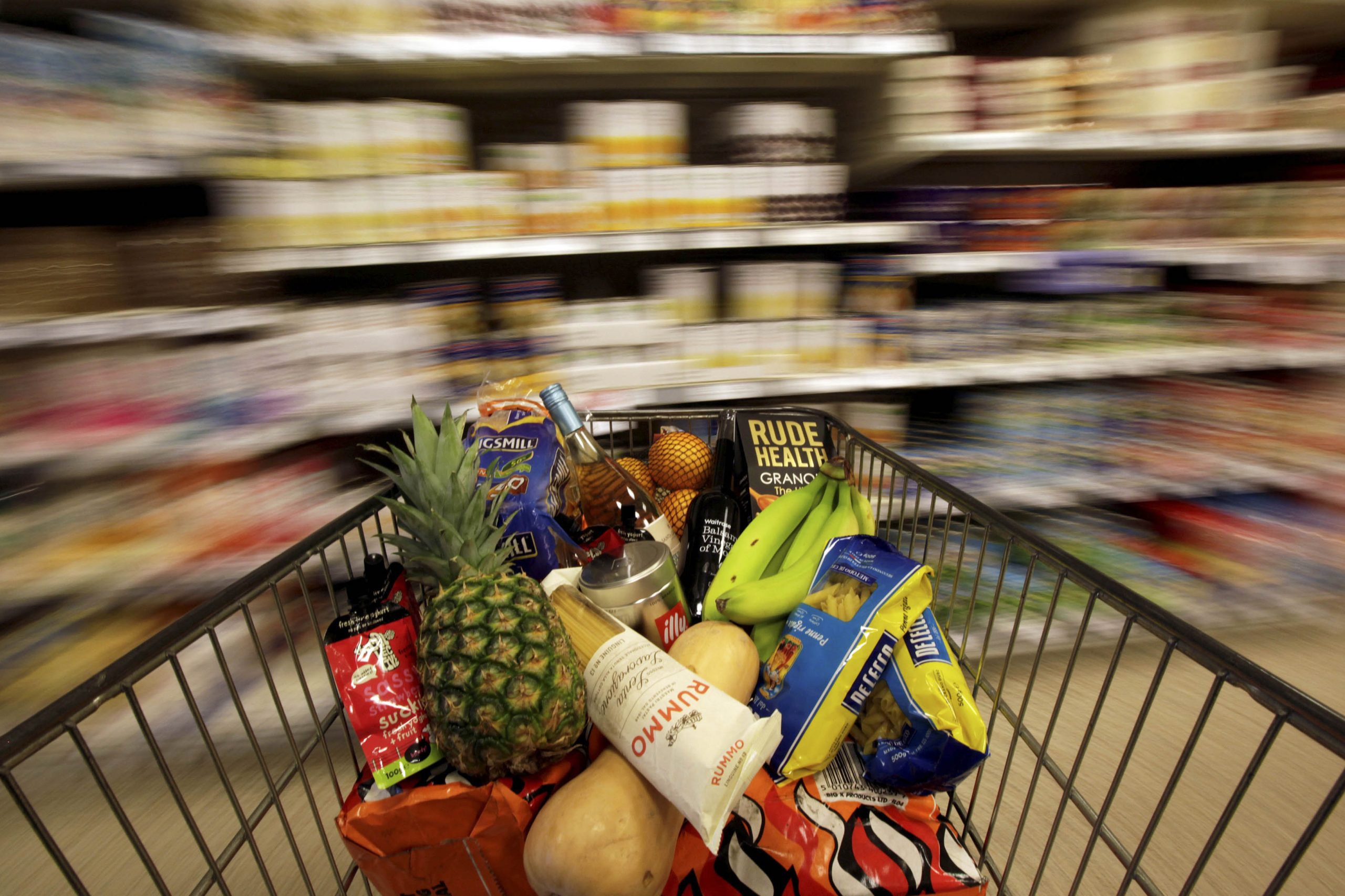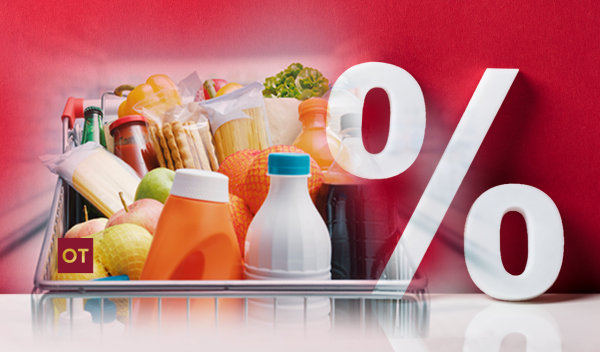
The pressure of rising prices is getting tighter and tighter, with Greek households – and especially the most vulnerable – not only finding it difficult to pay their exorbitant electricity bills, but also reluctant to fill the supermarket basket.
In the last three months, from mid-November 2021 until today, and despite the return of offers and promotions, the average price of potatoes has increased by 47%, spaghetti 23%, olive oil over 10%, fresh milk and cheese 8%, cold cuts 5%, and detergents 4%.
When food items constitute 35.9% of the total monthly expenditures of the poorest households, based on the data of the Family Budget Survey of the Hellenic Statistical Authority (for non-poor households the corresponding percentage is 22.2%), the revaluations in the basic food products become unbearable.
It should be noted that according to the Foundation for Economic & Industrial Research (IOBE) Business and Consumer survey for the month of January, the percentage of consumers who state that “as soon as they make it” amounted to 65%.
Inflation – record highs
The course of inflation with the breaking of another record in the index is expected to be officially certified by tomorrow’s publication by the Hellenic Statistical Authority of the January Consumer Price Index.
Already, according to preliminary data from the European Statistical Office for Greece, inflation in January is likely to reach the “barrier” of 6% from 5.1% in December.
6.6% increase in three months
A basket of 20 name brand products on November 13 cost 46.61 euros based on the average prices presented on the electronic platform e-Consumer of the General Secretariat of Commerce and Consumer Protection. The bill for the same basket on February 12 was 49.70 euros, with the percentage increase reaching 6.6%, although in some products due to offers the prices decreased.
When will de-escalation take place?
At a time when inflation has skyrocketed to 2010 levels, but a year in which nominal wages in Greece were higher than they are today, the large 29.4% increase in production costs in industry in December has already set the course. of revaluations for the first quarter of the year.
The messages from the Food and Agriculture Organization of the United Nations (FAO) regarding the international prices of raw materials remain ominous, with the FAO food price index reaching 135.7 points in January 2022, increased by 19 % compared to January 2021.
By category, meat prices increased by 17%, dairy prices by 19%, cereals by 12%, oils by 34% and sugar by 20%.
In the domestic market, the changes affect the food production in Greece due to the imported raw materials, but also the imports of final food and beverages from the international markets.
With these data, market participants report that any signs of de-escalation of inflation will not be seen before July.
The financial staff, for their part, is examining various scenarios to find a way to protect households from price gouging on basic items.
Extraordinary subsidies to the most vulnerable households – possibly through coupons – seem to be the preferred scenario, although no final decision has been made yet.
Latest News

PM Meloni Meets Vice President Vance in Rome Signalling Optimism on Ukraine Talks
Meloni emphasized the strength and strategic value of the Italy-U.S. partnership.

Airbnb: Greece’s Short-Term Rentals Dip in March Amid Easter Shift
Data from analytics firm AirDNA shows that average occupancy for short-term rentals dropped to 45% in March, down from 49% the same month last year.

Easter Week in Greece: Holy Friday in Orthodoxy Today
At the Vespers service on Friday evening the image of Christ is removed from the Cross and wrapped in a white cloth

Meloni and Trump Meet in Washington, Vow to Strengthen Western Ties
“I am 100% sure there will be no problems reaching a deal on tariffs with the EU—none whatsoever,” Trump stressed.

ECB Cuts Interest Rates by 25 Basis Points in Expected Move
The ECB’s Governing Council opted to lower the deposit facility rate—the benchmark for signaling monetary policy direction—citing an updated assessment of inflation prospects, the dynamics of underlying inflation, and the strength of monetary policy transmission.

Current Account Deficit Fell by €573.2ml Feb. 2025: BoG
The improvement of Greece’s current account was mainly attributed to a more robust balance of goods and, to a lesser extent, an improved primary income account

Hellenic Food Authority Issues Food Safety Tips for Easter
Food safety tips on how to make sure your lamb has been properly inspected and your eggs stay fresh.

Greek Kiwifruit Exports Smash 200,000-Ton Mark, Setting New Record
According to data by the Association of Greek Fruit, Vegetable and Juice Exporters, Incofruit Hellas, between September 1, 2024, and April 17, 2025, kiwifruit exports increased by 14.2%.

Easter Tourism Boom: Greece Sees 18.3% Surge in Hotel Bookings
Among foreign markets, Israel has emerged as the biggest growth driver, with hotel bookings more than doubling—up 178.5% year-on-year.

Greece to Launch Fast-Track Tender for Offshore Hydrocarbon Exploration
Last week, Papastavrou signed the acceptance of interest for the two Cretan blocks, while similar decisions regarding the two Ionian Sea blocks were signed by his predecessor







![Πλημμύρες: Σημειώθηκαν σε επίπεδα ρεκόρ στην Ευρώπη το 2024 [γράφημα]](https://www.ot.gr/wp-content/uploads/2025/04/FLOOD_HUNGRY-90x90.jpg)





![Airbnb: Πτωτικά κινήθηκε η ζήτηση τον Μάρτιο – Τι δείχνουν τα στοιχεία [γράφημα]](https://www.ot.gr/wp-content/uploads/2024/07/airbnb-gba8e58468_1280-1-90x90.jpg)



























 Αριθμός Πιστοποίησης
Αριθμός Πιστοποίησης